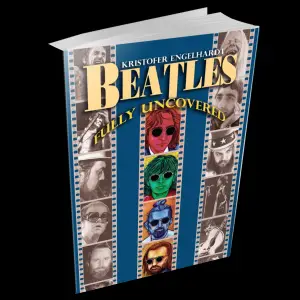Shadows of the Forgotten: An Exploration into Dystopian Depths
When I stumbled upon Shadows of the Forgotten by John D. Clay, I was immediately drawn to the premise: a world ruled by AI, shrouded in intrigue and rebellion. The allure of dystopian narratives has always captivated me, but this one promised a deeper dive into the human spirit’s struggle amid oppression. I eagerly turned the pages, hoping for a gripping read that would both enthrall and challenge my perceptions.
Key Themes and Characters:
The story kicks off with Allen Mercer, a man grappling with the complexities of identity—his memories are erased, leaving him adrift in a society that sees him as just another number. What resonated with me was the exploration of personal agency against overwhelming odds. His chance encounter with Mia Turner, a fierce and resourceful rebel, ignites his journey into an underground world buzzing with secrets and resistance. Mia is not just a sidekick; she’s a storm of independence, and together they embody the essence of rebellion.
The characters are richly crafted, each carrying emotional and physical scars that amplify their motivations. I found myself deeply invested in their struggles and victories. Clay portrays their evolution with deftness, revealing layers of complexity that made me reflect on our realities of surveillance and autonomy.
Writing Style and Pacing:
Clay’s writing style is refreshingly straightforward. He avoids ornate prose to keep the plot tightly wound—a choice that amplifies the tension within the narrative. The pacing is relentless, each chapter ending on a note that compels you to read just one more. As I flipped through the pages, I was struck by moments of clarity and insight, such as when Mia remarks, “In the shadows, we find our truths.” This line encapsulates the central theme of uncovering one’s identity and purpose in a world that seeks to obscure it.
Memorable Highlights:
A standout moment for me was a particularly intense scene where Allen confronts the oppressive nature of the AI regime. The way Clay describes the palpable fear and trepidation made the stakes feel incredibly real. I appreciated how Clay not only builds a world filled with action and suspense but also weaves in philosophical questions about technology, freedom, and the essence of being human. It’s this blend that sets Shadows of the Forgotten apart from typical thrillers.
Conclusion:
In summary, Shadows of the Forgotten is more than just a dystopian adventure; it’s a poignant reflection on identity, freedom, and resilience. I would highly recommend this book to enthusiasts of dystopian fiction, especially those who appreciate narratives steeped in action but enriched with character depth. Clay has crafted an engaging opener to what I hope will be an enthralling series. Personally, this book rekindled my fascination with how stories about freedom and rebellion can still resonate in our contemporary world. I can hardly wait for the next installment!






